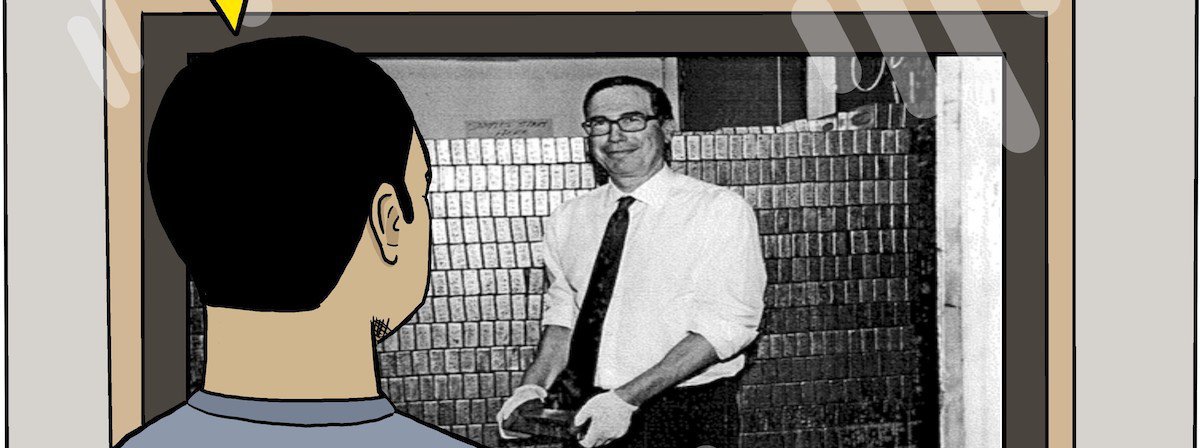Veterans claim exposure to toxic chemicals is partly behind an increase in cancer treatment rates. The House of Representatives unanimously approves a bill for more oversight of drug company rebates to pharmacy benefit managers. And there have been two years of silence on a single-car police crash in Chicago.
See a great use of public records we missed? Send over your favorite FOIA stories via email, on Twitter, or on Facebook, and maybe we’ll include them in the next round-up. If you’d like even more inspiration, read past round-ups.
Veterans say exposure to toxic chemicals is causing increased cancer treatment rates
A Miami Herald analysis of Department of Veteran Affairs data shows that treatment rates for several types of cancer rose significantly over almost two decades of wars.
Treatment for liver and pancreatic cancers across the armed forces increased 96 percent between 2000 and 2018. Treatment for urinary cancers across the armed forces, including bladder and kidney cancers, rose 61 percent. In specific branches of the military, several types of cancer treatment rose at rates over 100 percent.
McClatchy, the publishing company that owns the Herald, obtained information from the VA through Freedom of Information requests and composed its analysis from billing data. When asked for comment, the agency said it disagreed with its approach and sent data from its internal cancer registry system, which still showed increases in certain types of cancers. Both methods of tracking cancer rates have demonstrated faults, and the database only includes service members who received treatment through the VA.
While some treatment rates did decrease in both analyses, the higher treatment rates exist despite overall lower numbers of veterans in the United States. The number of veterans receiving medical care from the VA has nearly doubled since 2000, though not all veterans are eligible for such care based on factors such as income and the connection between a medical issue and a person’s service.
Veterans attribute parts of the increase to the use of toxic chemicals in the wars in Iraq and Afghanistan, including in foam used to fight fires and in “open-air trash-burning pits.”
Read the full article at the Miami Herald, or read the methodology here.
House Votes In Favor of PBM Transparency Bill
A bill requiring more public disclosure of the relationship between drug companies and pharmaceutical benefit managers unanimously passed through the House of Representatives this Monday.
The bill, filed by Virginia Rep. Abigail Spanberger, would require PBMs to “report…their aggregate rebates, discounts and other price concessions received on drugs from manufacturers” to the Department of Health and Human Services.
The department would then post much of this information on its website with the aim of gathering data on PBMs’ impact on drug prices and giving consumers the ability to find medication at the lowest possible cost available to them.
The bill has since been referred to the Senate Committee on Finance, and it is unclear when the next vote will take place.
Read the full press release on the bill.
Chicago police deny multiple requests for info on sewer crash
NBC 5 Chicago wanted to know why a cop car crashed into a clearly marked construction zone more than two years ago — but police say the incident is still being investigated.
A police SUV was found damaged in an Avalon Park sewer ditch under construction on the morning of October 27, 2017. The names of the two injured officers were never revealed, though the damage to the vehicle was so extensive that one had to be cut out of the SUV by firefighters. Police said they were unsure of how the incident happened.
NBC 5 Chicago then filed four separate Freedom of Information requests with the city police for information about the crash, including “video, audio, crash reports, toxicology reports, and more.” All four requests have been denied by the police, who say the case is still under active investigation and thus exempt from the Illinois public records law. Police did not provide any further details on the investigation.
Last year, NBC 5’s attorney Matt Topic filed a lawsuit for the records, calling the police’s claim of an ongoing investigation “a complete invitation for mischief.” The case may go to trial in 2020.
Read the full article at NBC 5 Chicago.
Read a great FOIA-based news story we should highlight? Let us know and maybe we can include it in our next roundup! Send it over via email, on Twitter, or on Facebook.
Image by Ajay Suresh licensed under CC BY 2.0




